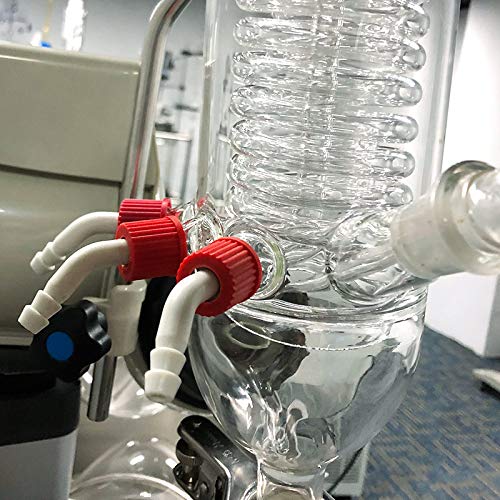In the field of automotive research and development, precision and consistency are paramount. Laboratories require advanced equipment to ensure accurate testing, formulation, and analysis of various components and materials. Among the most critical instruments in these laboratories are temperature control units TCUs and glass reactors. These systems play an essential role in processes such as chemical synthesis, material testing, and thermal analysis. Their ability to regulate temperature with high accuracy ensures the reliability and repeatability of experiments, ultimately contributing to advancements in automotive technology. Temperature control units are integral to automotive laboratories as they enable precise thermal regulation in experiments involving chemical reactions, material processing, and fluid dynamics. These units maintain stable temperature conditions, preventing deviations that could compromise test results. Whether used for cooling or heating applications, TCUs provide researchers with the control needed to achieve optimal conditions for specific reactions or material behavior analysis. By integrating advanced thermal management systems, laboratories can ensure consistent performance in tests involving lubricants, fuel additives, and polymer coatings.

Glass reactors complement temperature control units by providing a controlled environment for chemical reactions and material testing. Their transparent design allows researchers to monitor processes in real time, facilitating better observation and analysis. In automotive applications, glass reactors are commonly used for studying fuel combustion reactions, catalyst performance, and polymer synthesis. The ability to precisely regulate reaction conditions makes them invaluable for developing innovative materials and improving existing formulations. Their versatility extends to applications such as emissions research, where chemical interactions must be carefully studied to enhance environmental sustainability. One of the primary advantages of using temperature control units and glass reactors in automotive laboratories is their contribution to efficiency and safety. Modern TCUs are designed with advanced safety features, including over-temperature protection and automated shutdown mechanisms, reducing the risk of accidents. Similarly, glass reactors are built with high-quality borosilicate glass, which offers excellent chemical resistance and thermal stability.
These safety measures ensure that laboratory personnel can conduct experiments with minimal risk while maintaining a high level of accuracy and control over the testing environment. The integration of temperature control units and glass reactors also supports research in alternative fuels and electric vehicle battery development. With the automotive industry shifting towards sustainable solutions, laboratories must explore new chemical compositions, cooling fluids, and energy storage materials. TCUs allow precise simulation of extreme temperature conditions to test battery performance and thermal management strategies. Glass reactors facilitate the synthesis of biofuels and hydrogen storage materials, playing a crucial role in the evolution of eco-friendly transportation technologies. These Gwsi innovations contribute to reducing emissions and enhancing the overall efficiency of modern vehicles. As automotive research continues to advance, the demand for precise and reliable laboratory equipment will only grow. Temperature control units and glass reactors are essential tools for driving innovation, ensuring that new materials, fuel alternatives, and performance-enhancing solutions are developed with accuracy and efficiency.